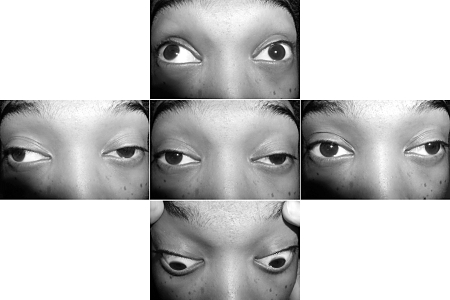Nipocalimab approved by FDA for treatment of generalized myasthenia gravis
Nipocalimab, a neonatal Fc receptor (FcRn) antagonist monoclonal antibody, has been approved by the Food and Drug Administration (FDA) for the treatment of generalized myasthenia gravis in adults and children ≥12 years who are positive for acetylcholine receptor (AChR) or muscle-specific tyrosine kinase (MuSK) antibodies. The approval follows FDA priority review designation and provides an alternative treatment option to offer sustained disease control for a broad range of patients with troublesome symptoms caused by myasthenia gravis.
The approval was based on results from Vivacity-MG3, a phase 3 trial of patients with generalized myasthenia gravis inadequately controlled with standard therapy. Nipocalimab added to standard care was associated with long-lasting reductions in total circulating IgG and AChR antibodies, and improvements in patient-reported outcomes, with a good safety profile.
Resumen
Definición
Anamnesis y examen
Principales factores de diagnóstico
- muscle strength fatigability
- ptosis
- diplopia
- dysphagia
- dysarthria
- facial paresis
- proximal limb weakness
- shortness of breath
Factores de riesgo
- family history of autoimmune disorders
- genetic markers
- cancer-targeted therapy
Pruebas diagnósticas
Primeras pruebas diagnósticas para solicitar
- serum acetylcholine receptor (AChR) antibody analysis
- muscle-specific tyrosine kinase (MuSK) antibodies
- serial pulmonary function tests
Pruebas diagnósticas que deben considerarse
- striational receptor antibody assays
- repetitive nerve stimulation
- single-fiber EMG
- CT of chest
Algoritmo de tratamiento
myasthenic crisis
mild to moderate disease (class I to III)
severe (class IV or V) or refractory disease
Colaboradores
Autores
David P. Richman, MD
Distinguished Professor
Professor of Neurology
University of California - Davis
Davis
CA
Divulgaciones
DPR declares that he has no competing interests.
Agradecimientos
Dr David Richman would like to gratefully acknowledge Dr Robert Lisak, Dr Andrea Corse, and Dr Ami Mankodi, previous contributors to this topic.
Divulgaciones
AC and AM declare that they have no competing interests. RPL is a Data and Safety Monitoring Board Member for the COUR myasthenia gravis clinical trial. RPL is a site principal investigator for clinical trials and a co-author for the clinical trial reports for myasthenia gravis therapies for Alexion, Argenx, and UCB Ra. RPL's institution receives payment for the time spent on these clinical trials. RPL has received book royalties from Oxford University Press and Blackstone, and has carried out consultancy work for Avilar.
Revisores por pares
Vern C. Juel, MD
Associate Professor of Medicine (Neurology)
Duke University
Durham
NC
Divulgaciones
VCJ declares that he has no competing interests.
Agradecimiento de los revisores por pares
Los temas de BMJ Best Practice se actualizan de forma continua de acuerdo con los desarrollos en la evidencia y en las guías. Los revisores por pares listados aquí han revisado el contenido al menos una vez durante la historia del tema.
Divulgaciones
Las afiliaciones y divulgaciones de los revisores por pares se refieren al momento de la revisión.
Referencias
Artículos principales
Narayanaswami P, Sanders DB, Wolfe G, et al. International consensus guidance for management of myasthenia gravis: 2020 update. Neurology. 2021 Jan 19;96(3):114-22.Texto completo Resumen
Skeie GO, Apostolski S, Evoli A, et al. Guidelines for treatment of autoimmune neuromuscular transmission disorders. Eur J Neurol. 2010 Jul;17(7):893-902.Texto completo Resumen
Gronseth GS, Barohn R, Narayanaswami P. Practice advisory: thymectomy for myasthenia gravis (practice parameter update). Report of the Guideline Development, Dissemination, and Implementation Subcommittee of the American Academy of Neurology. Neurology. 2020 Apr 21;94(16):705-9.Texto completo Resumen
Elovaara I, Apostolski S, van Doorn P, et al. EFNS guidelines for the use of intravenous immunoglobulin in treatment of neurological diseases: EFNS task force on the use of intravenous immunoglobulin in treatment of neurological diseases. Eur J Neurol. 2008 Sep;15(9):893-908.Texto completo Resumen
Artículos de referencia
Una lista completa de las fuentes a las que se hace referencia en este tema está disponible para los usuarios con acceso a todo BMJ Best Practice.

Diferenciales
- Lambert-Eaton myasthenic syndrome (LEMS)
- Botulism
- Penicillamine-induced myasthenia gravis
Más DiferencialesGuías de práctica clínica
- International consensus guidance for management of myasthenia gravis: 2020 update
- Practice advisory: thymectomy for myasthenia gravis (practice parameter update)
Más Guías de práctica clínicaFolletos para el paciente
Myasthenia gravis
Más Folletos para el pacienteVideos
Venepuncture and phlebotomy: animated demonstration
Peripheral intravascular catheter: animated demonstration
Más vídeosInicie sesión o suscríbase para acceder a todo el BMJ Best Practice
El uso de este contenido está sujeto a nuestra cláusula de exención de responsabilidad